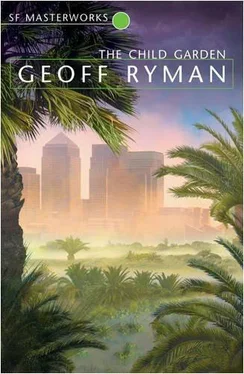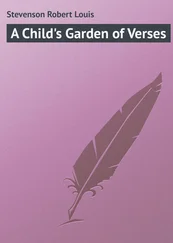It’s easily done, no mystery
With this little item from history.
Milton the Minister fell into the calamari salad. ‘I think of you all,’ said Lucy, ‘like you was flowers in my garden.’ Somewhere there was still the sound of helicopters.
A spreading fire lit up Milena’s life, blazing through all the branches of her nerves. The nerves branched in a yes/no, one/zero code perhaps, but the pattern led to something as dense and as fluid as magma.
I rise up like a tree in smaller and smaller branches, each tiny twig another self. But the roots are lost, the roots of my whole world are lost. I get nervous and my grammar reverses. Bad Grammar for real.
‘Because the Past is you,’ said Root, somewhere. Now?
The purifying fire burned through her, lighting up memory.
Purgatory.
Milena remembered standing on a train platform in Czechoslovakia. She was holding her mother’s hand. At the end of the pink Coral railway, on the edge of the horizon, there was a star. The star was coming for them both. Milena became very excited.
’Ssss Ssss Ssss,’ she called, making the sound of a train.
The train huffed and squealed and creaked its way into the station on huge rubber tyres with a steam engine between them like a calliope, streaming molecules. Crows rose up cawing from the field behind.
The train was huge and strong and friendly, like her father had been. It was as if her father had come back. There was a great hearty screeching and a clunk, as if her father had dropped down onto the sofa to play with little Milena. But between Milena and the train, there was a gap. The gap was dark, and Milena could fall down it. The steps leading into the train were as tall as she was, adult steps, not made for children.
Then her mother hoisted Milena up, as if lifting her into her father’s arms. Her mother spoke. Up we go, one step, two steps.
’Nastupujem! Raz, dva.’
She’s not speaking English, thought Milena remembering. It came as a shock. She’s speaking Czech and I understand every word. I understand it better than I ever understood English. English is not the same: it doesn’t pick me up and swing me. English is a different universe. Czech tongue, Czech time, Czech feelings. A train is a different thing altogether from a vlak. A train is British and mostly reliable and very run down, declasse. A vlak is abrupt and powerful, and takes you to the town, where all good things are. And because the vlak is so important it cannot be allowed just to leave. There must be a tremendous fuss made. Handkerchiefs waved. Women sticking hands and heads through windows, clutching each other, giving urgent advice, making urgent demands. Bring me back the books. And tell Juliana not to forget to see Aunty. As if they were going to go away and never come back.
Milena and her mother enter the carriage and there are rows of faces and a woman with spectacles and a fox fur coat.
‘Mami, proc ma ta pani na sobe mrtve zviratko?
Mama, why is that woman wearing a dead animal?’
Unanswerable. All the people in the carriage laugh, including the spectacled woman, though her mouth is thin and her eyes narrow. The question is unanswerable, because carefully considered there is no answer that makes sense. You can hardly say it is because it makes her look better. There is the fox’s dead and wizened face, biting its own tail. So why is she wearing it?
The burst of laughter alarms the child. She wants people to understand it really isn’t a stupid question.
‘Snedla je napred? Mela je ochocene?
Did she eat it first? Did it use to be a pet?
‘Milena,’ chuckles her mother, and looks around, nervously. No one else ever says her name in the same way.
Her mother’s voice, rises and falls, caressing the name, in love and pity, embarrassment and distress. Milena gives her mother great pain. The pain is tangled with many feelings. And the way her mother says it, restores the meaning inherent in the name.
Milena remembered that her name meant Loving One.
I still have the name, but I had lost its meaning, until now. It was as if her name had taken off a mask, to have its meaning restored, to hear her mother say it again with the sound it first had in Milena’s first world.
Milena’s mother is pulling her towards a seat, and talking to her, in a voice that other people can hear:
‘To nikdy nebylo zviratko, Milena. To narostlo. Pestuji kozesinu jako rostliny.’
It never was an animal, Milena. It was grown. They grow the fur like a plant.
Milena wants to know why they do that. But she is afraid, afraid of another burst of laughter. She is deeply chagrined. Obviously, it is a bad tiling to ask questions. Questions show that she is stupid. The child already knew that she was stupid, that she must keep quiet, that she must hide. They had given her viruses time after time, but the viruses would not hold. Milena would not learn. She was resistant.
Her mother lifts Milena up onto a seat. Milena can feel how small and light she is, as if she can flick herself up into the air like a playing card. It is a talent to be so light, so quick, so much like a fire. Time seems so slow and smooth, like honey. Milena’s legs swing high off the floor. Her mother pulls her back into the seat and her legs have to stick straight out in front of her. Nothing is made for children.
There is a screeching and a sudden lurch forward. Slowly, as if weary or reluctant, the train begins to pull away.
‘Zamavej no rozloucenou, Milena.’
‘Wave goodbye, Milena. Wave goodbye.’
Her mother is weeping very silently. Milena the child is perplexed. She had been told they were going away, but she did not believe it. Go away where? What other place to live is there? To Prague? That would be lovely, but wasn’t Prague dangerous? Hadn’t they left Prague to hide?
The drab little station is hauled away. It is not possible to see the village. There are trees, and the old river, and the cows, dim in the mist, and a steeple with a rounded dome. Gradually, it is all swallowed up in darkness.
Home, wept the Milena who was remembering. That’s my home. Milena the child is not weeping. For her it is just a passing landscape. That is the country I have never seen again, thought the one who remembered. That is the place I carry around in my head, unformed, part of me, but not remembered. Until now.
Milena’s mother holds up Milena’s hand in a tiny mitten and waves the hand for her, makes it wave goodbye to no one.
Not mittens, but palcaky.
The clothes the people on the train wear, the way their hair is cut and combed, the stockings over trouser cuffs to keep out the cold, the smell of the trains. Mint tea and little sugared cakes in boxes to eat on the way, and that particular resin panelling, and the sound of the train, its low throaty growl, as if it had a beard and sang songs in a wild, strained voice or smoked cigars. As if, like her father, the train talked about freedom until it died.
Not freedom, not freedom, but svoboda.
Those aren’t houses, they’re domy..
Those aren’t fields, they’re pole.
Those aren’t blackbirds, they’re kosi.
And I am not Milena Shibush. I never became Milena Shibush. She is elsewhere, in the land that might have been.
Oh Tato, oh Mami, does it stretch that far away? Does life pull us apart so much, that we stop being real? All of that then was real? How did it fade? And how is it here again?
Milena remembered childhood.
She remembered skinning almonds in someone else’s house. Loving One, Loving One, they kept calling her. The almonds came out of a red clay bowl of boiled water and they were hot. Milena kept pushing with both thumbs, and then magically, mysteriously, the almond would slide out of its brown skin.
Читать дальше












